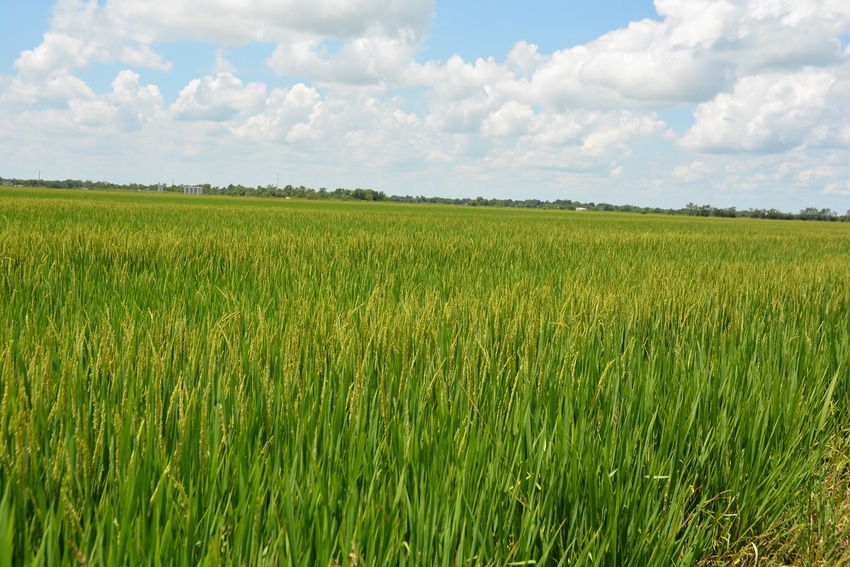August 3, 2017

As Texas rice farmers near harvest peak, no news from the field means potentially good news at the mill.
“We’re on the front end of the harvest, still about [a week] from the peak, and we’re not hearing of any serious problems with insects or horrendous disease problems,” said Dr. Ted Wilson, center director at Texas A&M AgriLife Research and Extension Center-Beaumont. “It’s too early to know what yields will be like, but we will probably have a normal year.”
Weeds have been the biggest issue this year, but were not too bad unless a field was in an area with a lot of rainfall, Wilson said.
The rice-growing region — more than 20 counties mostly along the upper Gulf Coast and near the Oklahoma-Arkansas border — has different soils and rainfall amounts each year, which affects yields, he noted.
“East of Houston, the rice growing area gets an average of 60 inches of rain a year and the soils are heavier, so the moisture lingers,” Wilson said. “West of Houston, the rice fields get about 37 inches a year and the soil is lighter.”
Texas rice farmers planted 158,000 to 172,000 acres, Wilson estimated, and may benefit from improving prices stemming from the overall U.S. and world rice situation.
Overall, Wilson said, the U.S. rice crop may have decreased about 500,000 acres from 2016 levels.
RICE ACREAGE IS DOWN
“Most of the drop this year is in Arkansas due to the heavy rains and flooding that happened too late for them to replant. Acreage in Texas may be down from 10 percent to 17 percent, which is largely due to suppressed prices,” Wilson said.
He explained that the huge carryover of rice internationally — especially in Thailand where the government had purchased large stocks from farmers and then dumped it on the global market — has been selling down to more manageable levels.
“As a result, prices are expected to soon rebound to the levels they should be,” he said. “Barring a tropical storm developing during harvest, we should have a normal year. We have phenomenal growers in Texas.”
About the Author(s)
You May Also Like




